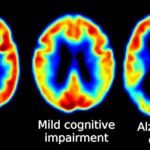 Recently I wrote about a new service being offered by tech giant IBM to utilize machine learning in the field of radiology.
Recently I wrote about a new service being offered by tech giant IBM to utilize machine learning in the field of radiology.
The service, called Avicenna, hopes to identify anatomical features and abnormalities in medical images, and by taking this analysis and cross-referencing it with the patient’s medical record provide support for a successful diagnosis.
Quicker and more effective
The aim is for the service to make the work of cardiologists and radiologists quicker and more effective. It is still very much in the early stages of development and is being trained on anonymized images in cardiology and breast radiology areas.
A British startup is now taking a similar approach to detecting the onset of dementia. The venture, called Avalon AI, aims to better predict the transition from Mild Cognitive Impairment (MCI) to fully blown dementia.
At the moment, despite 15% of patients with MCI progressing to have dementia, there is no reliable test for predicting which patients will make the progression.
As with most illnesses, faster diagnosis goes an awfully long way to then being able to treat the illness, so speed is of the essence.
The Avalon approach uses machine learning to analyze the brain scans of patients and then make a prediction about their likelihood for developing dementia. The team reveal that in initial tests, the system has a success rate of approximately 75%.
This faster diagnosis allows better treatments to be both developed and administered, thus hopefully going a long way towards reducing the impact of dementia on society.
“Curing ageing is our ultimate goal. This is so important to us. If you solve ageing, you will have enough time to address all the other big problems. It quickly became obvious to us that we should start by tackling dementia. On a global level, dementia affects a third of the population. On a personal level, we both had grandmothers who suffered from this terrible disease. After doing some research we were surprised to learn that most pharmaceutical companies have been developing drugs that address the symptoms of dementia instead of its root cause. We believe that a key reason for this is the prohibitively high cost and high risk of running clinical trials on early stage patients. When we realised that we had the skills to build computer aided diagnosis technology that could help reduce these costs significantly, we understood that we just could not *not* do it,” co-founder Alejandro Grabotevsky told me recently.
It’s an interesting approach, and seems to use a machine to do a similar job to that undertaken by the crowd in the case of Salvatore Iaconesi, who opened up his brain scans to the world to try and get a better diagnosis of his condition.
It will be interesting to see how they get on in the coming year.